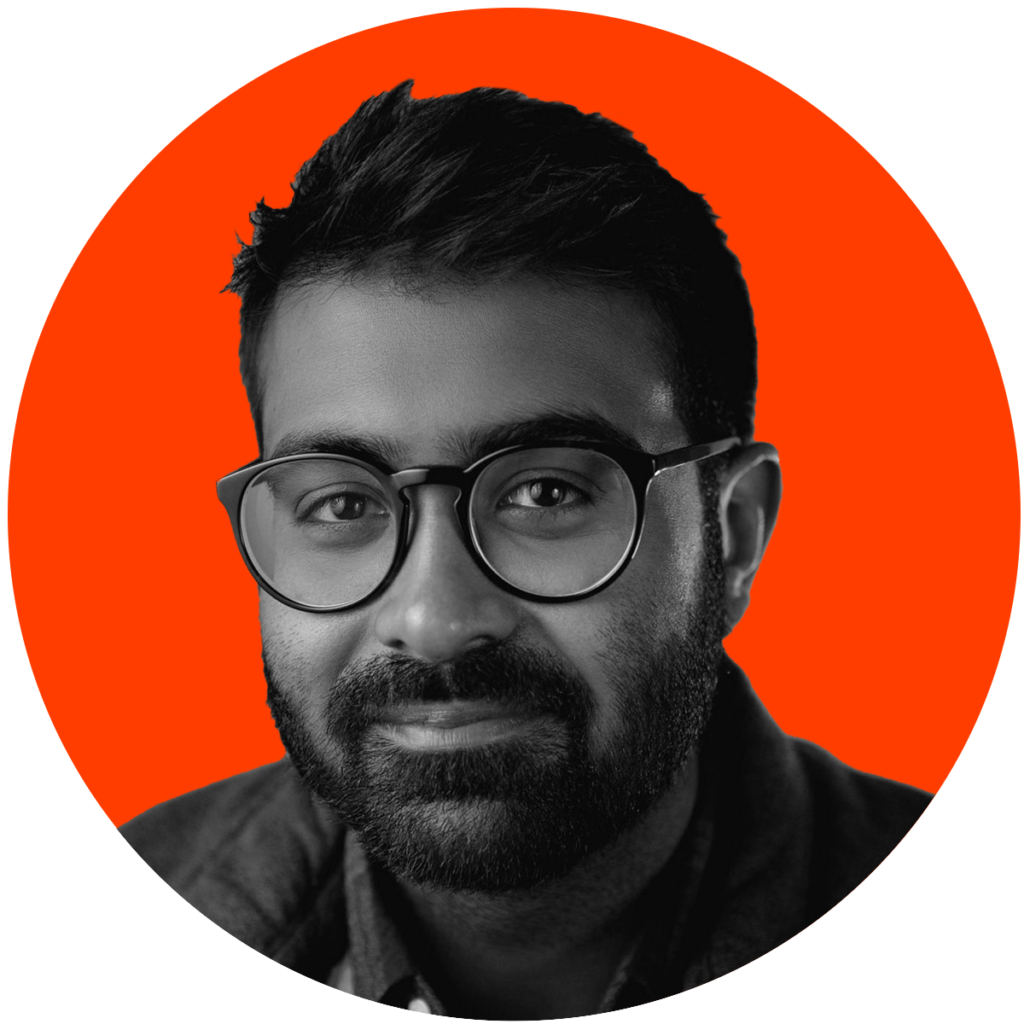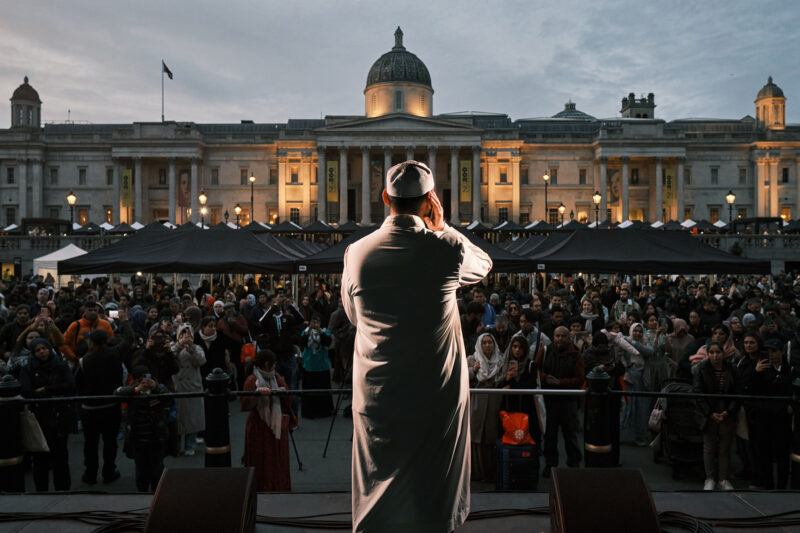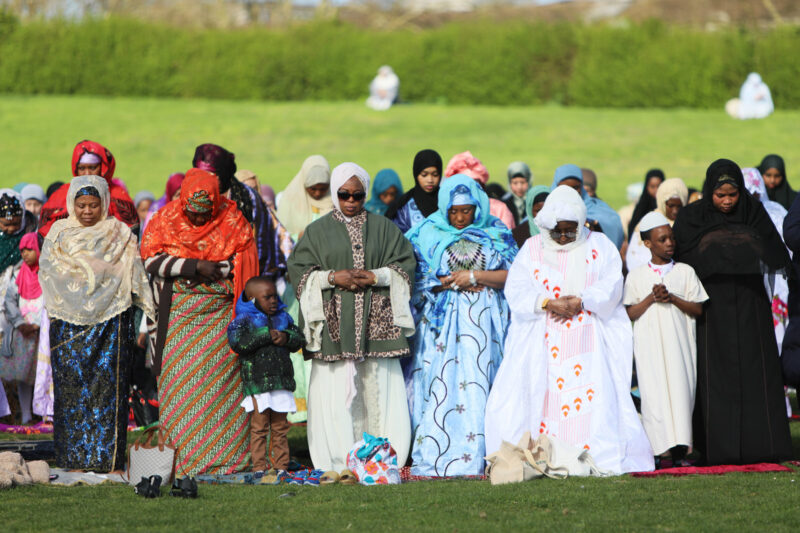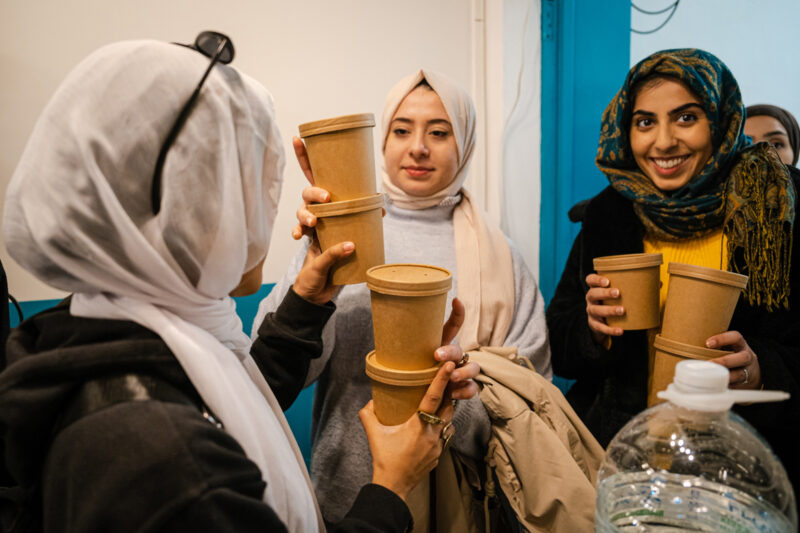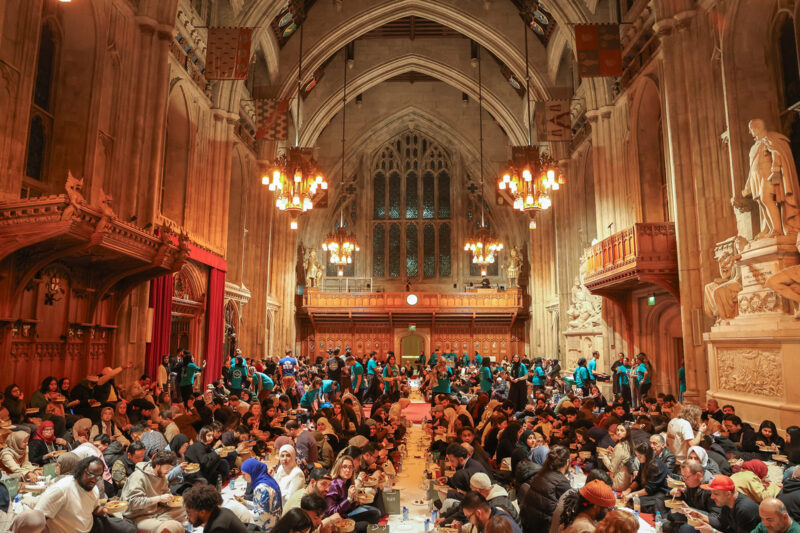Inside the Eid al-Fitr moon wars
While many UK Muslims rely on pronouncements from Saudi Arabia to call an end to Ramadan, others are looking to our own stars
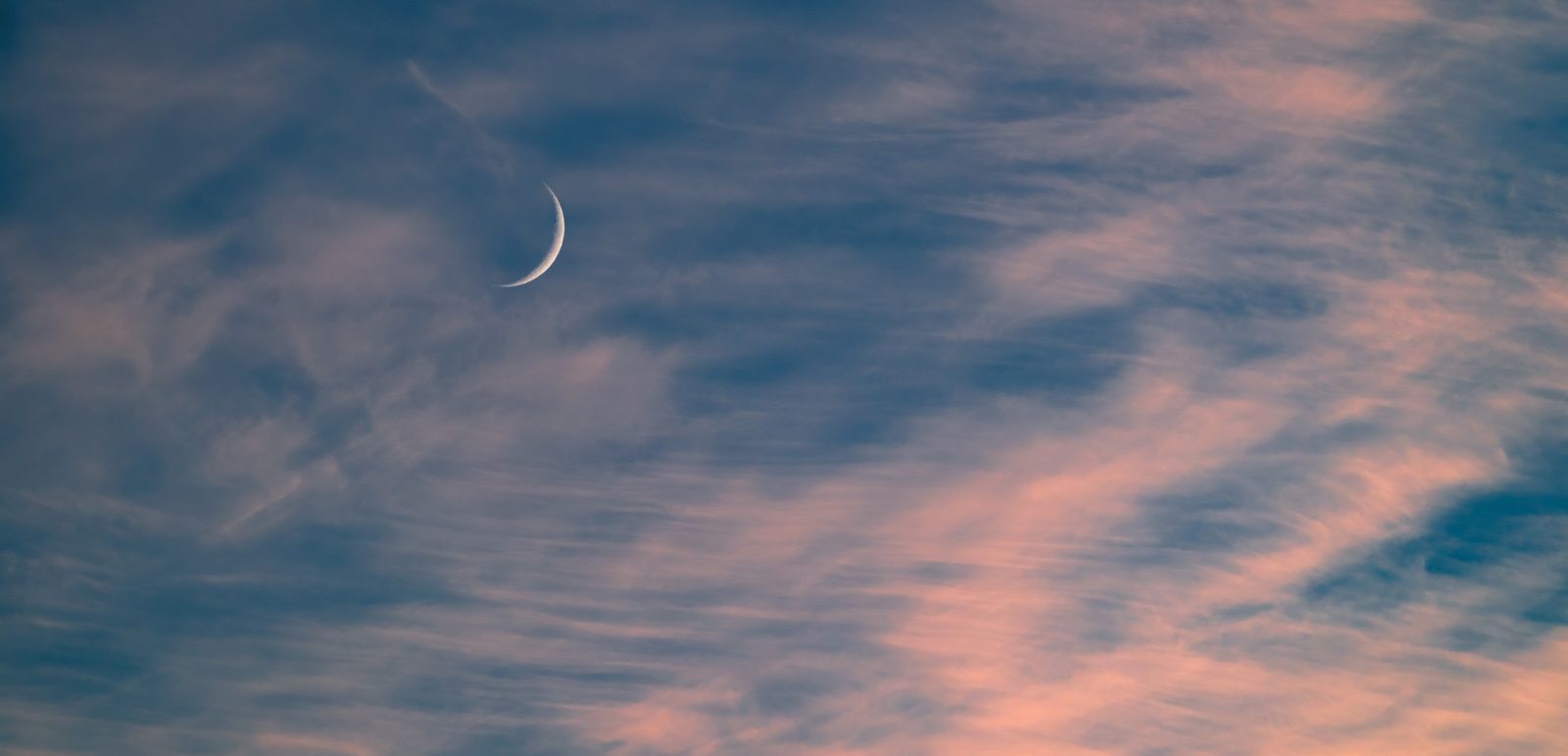
On Thursday 20 April, around 50 people gathered in the chill night air at the top of the Northala Fields View Point, a 22 metre mound on the edge of North London that offers a panoramic view of the city. The crowd had assembled in an attempt to sight the new crescent moon, marking the end of Ramadan.
Over plates of samosas, spring rolls, vegetable biryani and fruit, attendees patiently waited for the sky to darken, hopefully allowing them to view the position of planets and stars, which would, in turn, help them to identify the moon without any need for telescopes or other magnification.
“You don’t need any special equipment or charts to see the moon,” said Akhlaaq Abdur-Razzaque, an astrophotographer and national coordinator of the New Crescent Society, an astronomical organisation that aims to “celebrate the relationship between Islam, astronomy and faith” by teaching people how to sight the moon with the naked eye — a skill rooted in the sunnah of the prophet Muhammad.
“You just need a clear view of the sun when it sets, and the new moon won’t be far from that,” he added.
Despite reports from His Majesty’s Nautical Almanac Office stating that the new crescent moon would be impossible to view in the UK, many of the country’s mosques had already announced the end of Ramadan based on the new moon allegedly having been seen in the Kingdom of Saudi Arabia.
That declaration had thrown the Eid al-Fitr plans of some of my companions into disarray — not least because their families would likely celebrate on different days.
Not all Muslims try to view the new moon independently. For many — especially those living in western nations — confirmation of Eid will usually arrive via their mosque, in the form of a text message, email or WhatsApp notification. Those communications usually state that the new moon has been sighted in a Muslim-majority country, such as Morocco, Iran or Egypt.
In most cases, mosques have relied on proclamations made by Saudi Arabia. In 2002, the country established the Umm al-Qura calendar, a modernised lunar calendar that aims to predict the first sighting of the new crescent moon anywhere in the world. For many Muslims, regardless of their proximity to Saudi Arabia or the Middle East, this calendar has ended up deciding when they can officially stop fasting.
However, this outsourcing of moon sighting has also sparked what have become known as “moon wars”: annual disputes — and the occasional heated argument — over the validity of particular moon sightings and whether a single country has the right to declare the end of Ramadan for all of the world’s 1.9 billion Muslims.
While a number of international Islamic bodies, including the European Council for Fatwa and Research (ECFR) and the Islamic Society of North America (ISNA), subscribe to the Umm al-Qura calendar, other groups and scholars are much more wary. Some go as far as to openly question its methodology and accuracy.
In 2021, the UK-based Islamic scholar Shaykh Suliman Ghani argued that for more than a decade, the calendar had been sighting the moon “a day earlier than when it is physically possible to see the new crescent”, and that its readings of lunar positions were frequently at odds with the moon visibility charts recorded by other astronomers.
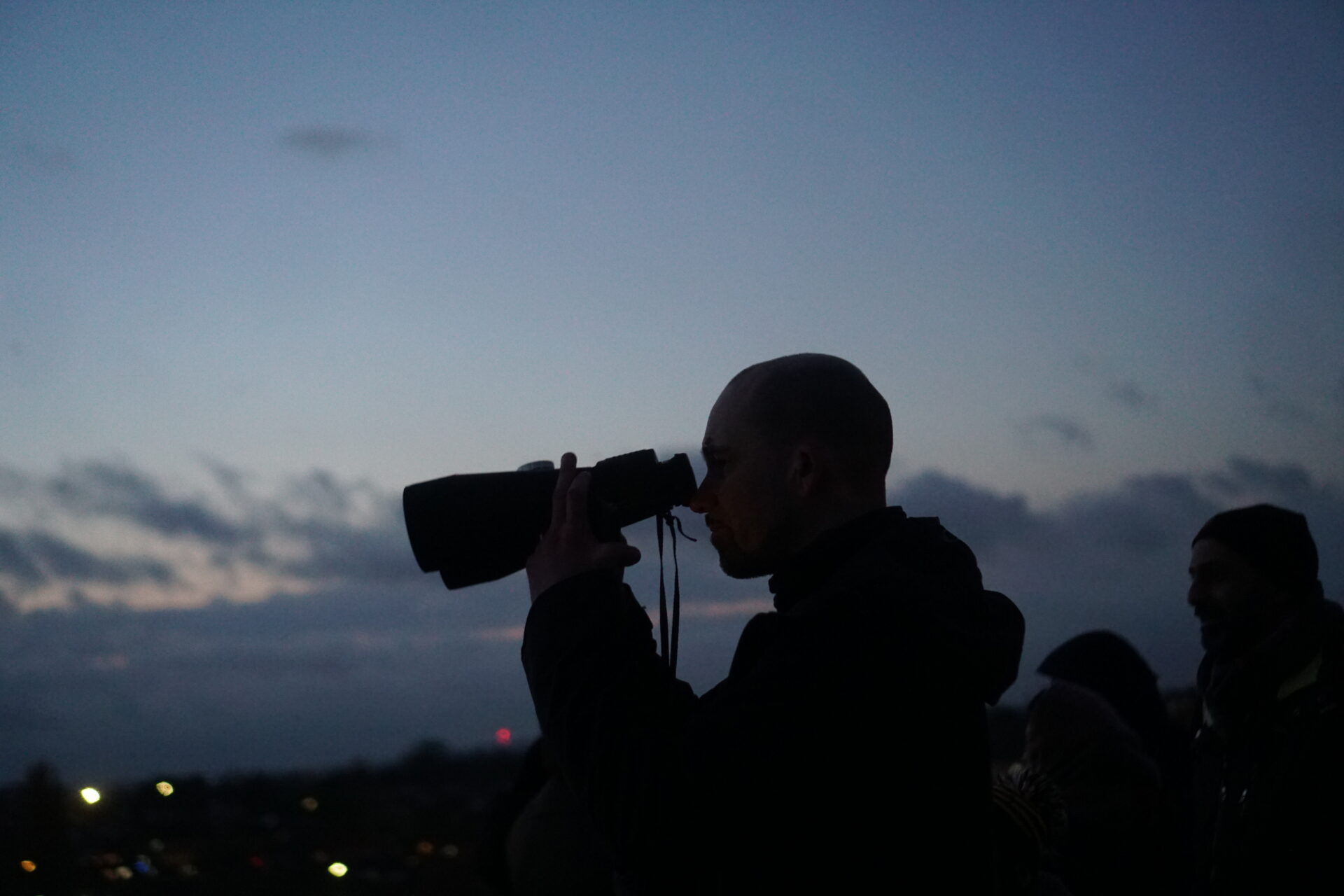
Criticism has long been levelled at the Saudi calendar, even by people living in the Middle East and North Africa. In 2011, Maged Abou Zahra, then president of Jeddah Astronomical Society, told Egyptian media that Saudi Arabia’s prediction of that year’s Eid moon was near-impossible in practice.
That meant it was possible that Muslims around the world following Saudi advice would be ending their fasts a day before they were supposed to. While Saudi authorities rejected Zahra’s statements, the controversy fuelled growing calls for Muslims to start using more scientific methods to conduct moon sightings in their home countries.
Among those voices was Imad Ahmed, a doctoral candidate at Cambridge University, who started the New Crescent Society in 2016.
“Emotions around moon sightings are really high, and we’ve heard stories about family disputes and even imams being sacked from mosques for disagreeing with the moon sightings of other countries” he told me, adding that relying on other countries to declare that sighting of a new moon is “a relatively recent phenomenon”.
For him, the origins of the UK’s moon wars may be traced to Muslim migration in the 20th century, when “poor weather and overcast skies meant it was difficult to make a naked eye observation.”
Since its inception, the New Crescent Society has trained dozens of moon sighters, who attend monthly sighting events across the country, including flagship demonstrations at the Royal Observatory in Greenwich. Ahmed believes that the group’s popularity can be attributed to the fact that “most people find a sense of wonder, spirituality when looking toward the stars”. However, he went on to say that interest in the New Crescent Society is also driven by practicality.
“Relying on secondary information on moon sightings can have negative impacts on Muslims,” he said. “We’ve heard of families who have never celebrated Eid together because they always have disagreements on when the new moon has been sighted or are disagreeing on whether the source of information is accurate.”
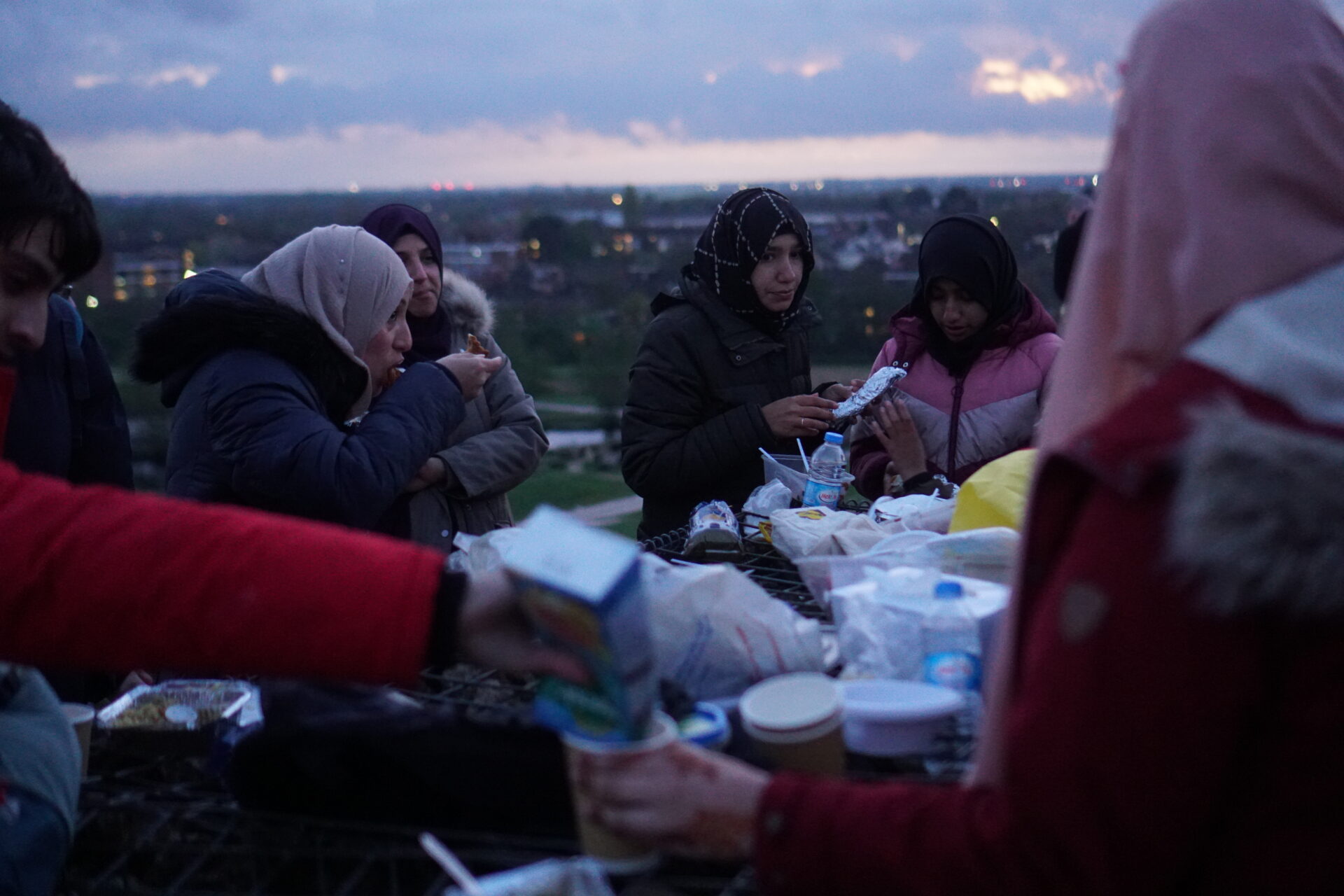
According to Ahmed, such disagreements can also undermine trust in mosques. His proposed solution is for UK Muslims to create their own Islamic lunar calendar, based on astronomical sightings made within the country.
It’s an idea that has been attempted before. In 1984, Dr Iqbal Sacranie, the founding secretary-general of the Muslim Council of Britain, tried to bring mosque leaders from different denominations and areas together to agree on using data from the Royal Observatory to determine the beginning and end of Ramadan. While many initially agreed, some eventually reverted back to the sightings made by Morocco and Saudi Arabia.
Ahmed believes that the years’ worth of data collected by the New Crescent Society provides a strong foundation upon which UK Muslims can build their own lunar calendar. He considers doing so important for future generations to “establish their own communities and build institutions within the UK.” Among the additional benefits of a UK Muslim lunar calendar is the potential for Eid to be recognised as an official holiday — something that the majority of young Muslims in the UK support, but that cannot be acted upon as long as internal disagreements as to its actual date exist.
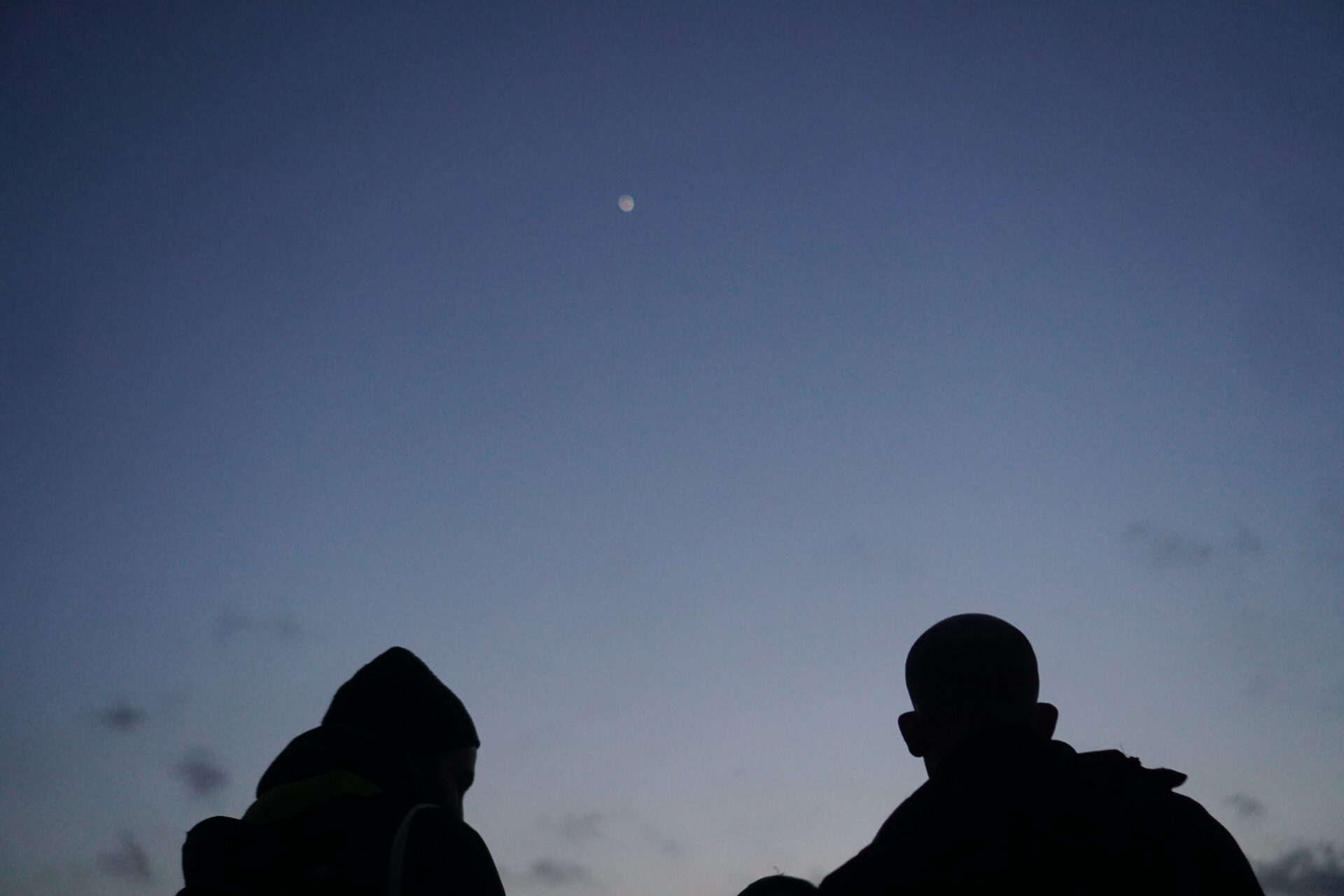
As expected, we were not able to see the moon from the Northala Fields View Point. According to Akhlaaq Abdur-Razzaque, national coordinator of the New Crescent Society, its movements were too close to the sun, meaning that it would be impossible to make a naked-eye sighting from any angle.
Still, he believed that braving the cold and attempting our own sighting was worth it. While we may not have seen the moon, we did locate Venus, which would have been impossible to see if we weren’t on top of the mound. As we watched a group of children sight the planet, Abdur-Razzaque explained that the importance of public astronomy is not solely based on its ability to confirm the accuracy of significant dates on the Islamic calendar.
“Astronomy inspires a sense of wonder,” he said. “It allows us to appreciate everything Allah has given us”.
 Newsletter
Newsletter

